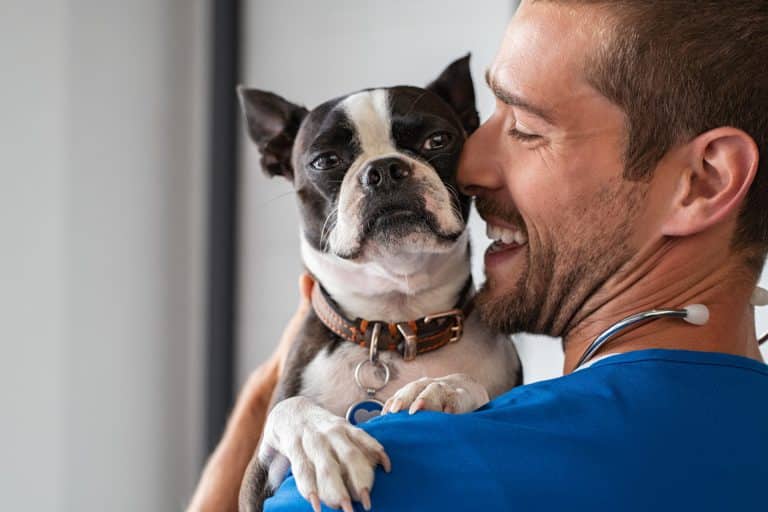Blog How Often Should I Take My Dog to the Vet?
Most people usually take dog to the Veterinarian once a year for an annual checkup. But the question is, is that enough?
How often you really need to take dog to the Veterinarian depends on your Veterinarianerinarian’s recommended protocol, your dog’s general health, and its life stage. For example, senior dogs and puppies generally need more frequent visits, while healthier adults would be fine with annual check-ups. In case you are worried about the cost of Veterinarian visits, do keep in mind that regulative health care can keep your dog healthier for longer periods, and can even save you money in the longer run.
Birth to one year: vaccinations and more
You;ll get well acquainted with the Veterinarian, once you get a puppy. Experts recommend that you should get monthly wellness exams during early puppyhood. That’s once every 3–4 weeks until they’re 16 weeks old, following a basic vaccine schedule.
Here’s a basic vaccination schedule for young puppies.
- 6–8 weeks:
- First DHLPPC shot (combined vaccine for distemper, hepatitis, leptospirosis, parainfluenza, parvo, and corona).
- First Bordatella (kennel cough)
- 10–12 weeks:
- Second DHLPPC shot
- 14–16 weeks:
- Third DHLPPC shot
- Second Bordatella ( if given nasally, it is good for 6 months, if injected it is good for 1 year
- 24 weeks: Rabies
It’s important to understand that your puppy’s vaccination schedule needs may vary depending on your puppy’s particular health profile, where you will be taking your dog (i.e. the groomer, daycare, kennel or dog park) and your location. You can work with your Veterinarian to make an appropriate course for your pup. The Veterinarian will examine your puppy to make sure they’re staying healthy and developing well, during your puppy wellness visits. It may seem like puppy Veterinarian schedules are a lot of investment of time and money. But vaccines are the thing that will protect your puppy from potentially dangerous diseases. Not only this, but you’ll also help ensure a positive relationship with the Veterinarian for life by getting your puppy used to the Veterinarian early on.
Adulthood (1–7 years)
Adult dogs typically will need annual wellness exams, as mentioned earlier. When your dog is a year old, at the first yearly checkup, your dog will typically get a distemper-parvo and rabies booster shot. They should also update the Bordatella (kennel cough) vaccine, as well, if your dog goes to doggy daycare. Your dog may also need rabies boosters on subsequent annual visits (the timings can vary from state to state).
As your dog continues to age, the annual exam will continue to include a head-to-tail checkup, dental exam, heartworm test, and often, vaccination updates. The Veterinarian will also ask about your dog’s behavior, training, and overall wellness at the annual exam.
Senior years (8+ years)
Older dogs are more prone to illness and age-related injury and have more particular health needs. And given the fact they need extra care, senior dogs should see the Veterinarian semi-annually, almost after every six months. Your Veterinarian may also recommend a variety of diagnostic tests for your senior dog, in addition to the regular wellness-check stuff. These can include fecal tests and annual blood tests, and perhaps ultrasounds, chest radiographs, and a blood pressure test.
Your Veterinarian may recommend more frequent visits depending on their health, as your dog gets older. Frequent Veterinarian visits catch changes more quickly and can give your Veterinarian more time to treat issues as they arise.

